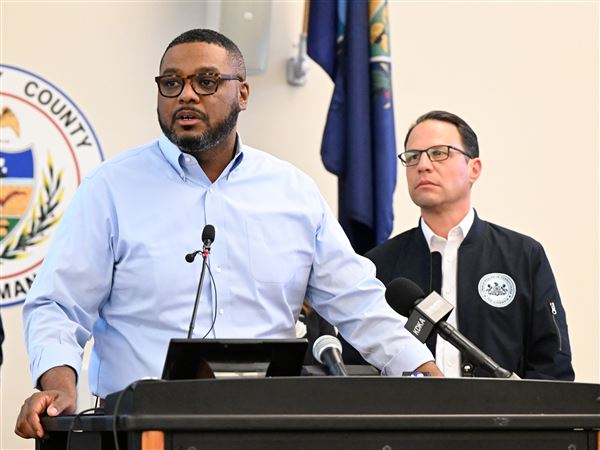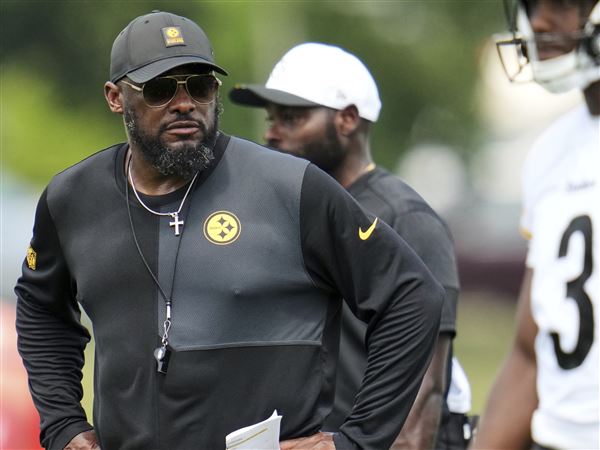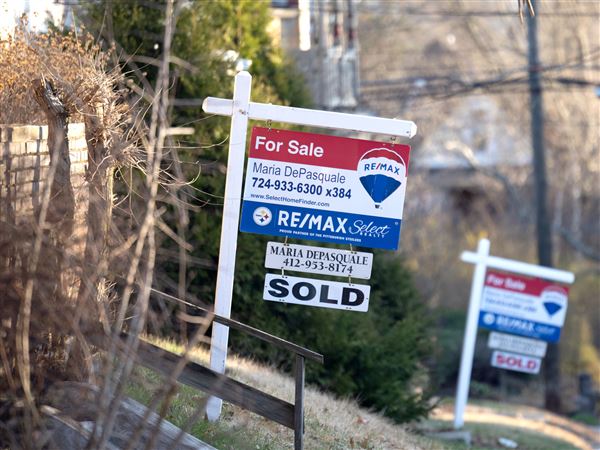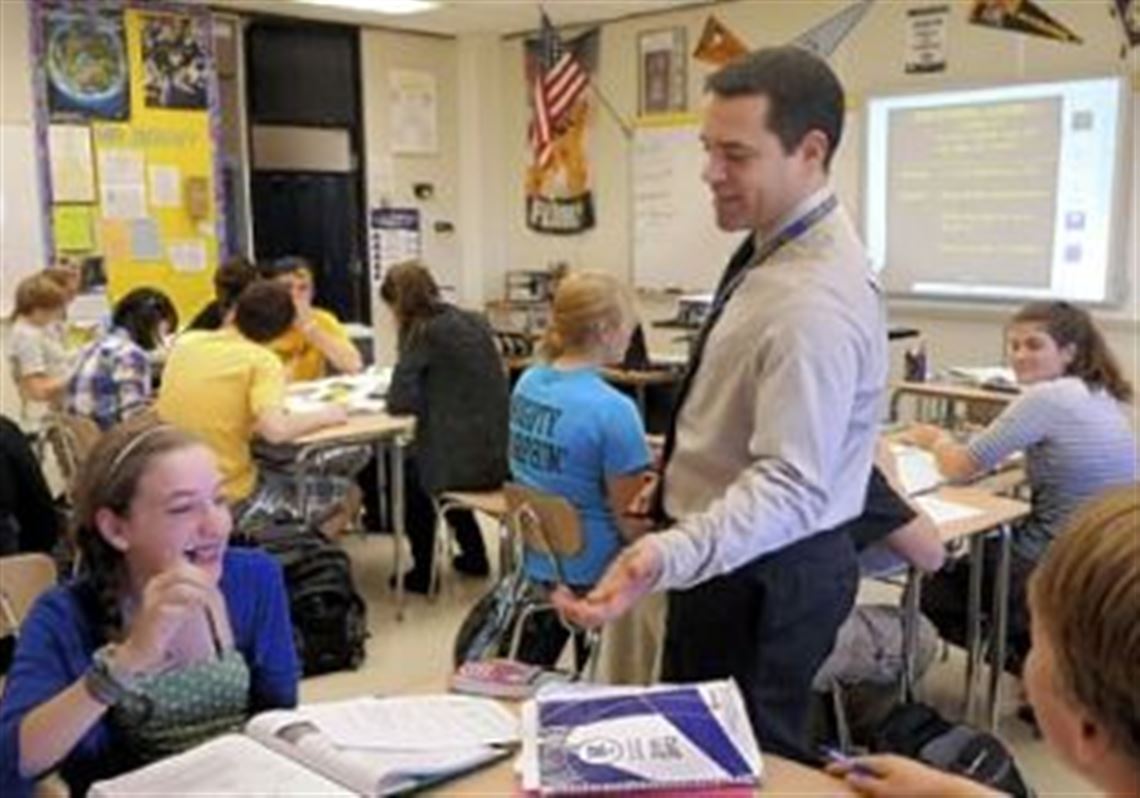Pete Bouvy, a math teacher at Mt. Lebanon High School for 15 years, spent most of his career using his class time to lecture to his students and demonstrate how to work through problems. Then, he sent the students home to do their homework alone.
But recently, he came across the concept of what is called the "flipped classroom" -- a practice that uses homework time for lectures and class time for homework.
The switch allows students to watch the lectures online outside of the classroom and then bring their homework to class to work on under the teacher's supervision.
"I tell my students, your homework is to watch this video so tomorrow we can jump right into the problems," Mr. Bouvy said.
While the flipped classroom concept is relatively new in local schools, Joseph Zisk, education professor at California University of Pennsylvania, predicts it will become popular.
"This is going to have some traction to it because it will give teachers more time to get content across to the student," Mr. Zisk said.
Mr. Zisk uses the flipped classroom to teach some of his courses, but he also teaches the technique in some classes to educators who are working on advanced degrees.
Both Mr. Zisk and Mr. Bouvy said the concept started with an online tutoring service called Khan Academy. The website has some 2,700 videos on educational topics -- the majority on math and science -- that are offered as lectures that students can watch outside of class.
Khan Academy founder Salman Khan promotes the practice of teachers using the videotaped lectures for outside-of-class tutoring so that more class time can be spent with teachers working hands-on with students, Mr. Zisk said.
In Mr. Bouvy's class, students are assigned to view lectures online outside of class. When they come to class, they work in groups of three of four, with desks arranged in pods, while Mr. Bouvy moves from group to group, offering guidance. If he finds something that appears to be a particular stumbling block for a number of students, he reviews the topic for the entire class.
While students are working in his class, Mr. Bouvy sets time limits on when certain sections of the work must be completed and then randomly calls upon students to share their work with the class.
Mr. Zisk said building accountability into the system is essential for the flipped concept to work.
Mr. Bouvy not only makes the students accountable for being productive in class, he has them answer short quizzes online after they watch his online lectures to ensure that the students are viewing the lectures before coming to class.
Mr. Zisk said he has software that allows him to see which of his students click onto his lectures and for how long they watch.
Mr. Bouvy said he has found that flipping his Algebra II class has allowed him to become more of a "coach in the classroom" and to offer more individualized instruction to students. It also has engaged students in online conversations about their work on the wiki where he posts his lectures, he said.
Students also can post questions on the lectures to the wiki, which is part of the school district's network. Mr. Bouvy has the site send him email alerts if a question is posted so that he can answer promptly with a post that all of the students can see.
"In a way, teaching becomes 24/7 with this approach," Mr. Zisk said. "But that makes it exciting. I think it helps with the learning."
Mr. Bouvy acknowledged that he makes himself available to students after hours via his wiki, but he said he doesn't mind if it helps the students to grasp a concept.
JoAnn Villa, a colleague of Mr. Bouvy's at Mt. Lebanon High School, is using recorded lessons in her honors pre-calculus class but has not completely flipped the course.
The first time she used recorded lessons was this school year when she knew she would be out of the classroom for several days at a conference. During that time, she directed students to watch Khan Academy videos on numerous concepts and then left worksheets for them to complete.
The process worked so smoothly that, after she returned, she decided to create videos with her own content for her students. She now creates four to five videos per chapter on major topics.
Mr. Bouvy posts recorded lessons once or twice per week. After each online lesson, the class works on the concept for two to three days.
Richard Texter, a social studies teacher at North Hills Junior High School, said he had been using a version of a flipped classroom but didn't realize it was a defined educational technique.
"The district provides us with a lot of technology and Blackboard accounts," he said, referring to a company that helps educators use technology to teach. "I was using Blackboard to allow the kids to access content outside of the classroom. I'd attach learning journals where I ask them to respond to the content.
"I was talking about it with one of my administrators and she said, 'That's a flipped classroom,' and I didn't know what she was talking about," Mr. Texter said.
He said the practice helps him and other social studies teachers in their effort to teach their courses without textbooks.
Mr. Texter posts lectures and podcasts for students to view outside of class and then they work on projects in the classroom. He gives students the opportunity to work at their own pace and to have some choice over their assignments.
"In class, the kids are working on different things. You can have a vast array of things going on at the same time. You can sit down with your students to get a good idea of how they are actually progressing," Mr. Texter said.
One drawback to the technique is that some students may not have access to technology at home. But educators said the lectures can be accessed from any computer, so students who don't have one at home can use school computers during study hall, lunch or before or after school, or they can use computers at public libraries.
"A couple of students have said they don't have computers at home, and I offer them time inside of the school -- homeroom, lunch or another class period -- where they can come and borrow technology from my classroom," Mr. Texter said.
Another drawback is the amount of time teachers must invest in creating their online lectures and mastering the technology that is required for the effort. However, Mr. Zisk noted that once a teacher has created a set of videos for a course, they can be used each time the course is taught.
"If you are creative and have the right software, you can really make a nice little video with graphics and sound links, and there is software out there that makes it easy," Mr. Zisk said.
One appeal of online lectures is that students can watch them repeatedly if they are confused about a topic. Plus, once they are posted, they remain online so students can use them to review for tests.
The online lectures also make lessons portable, with students being able to watch them anywhere from their smartphones or electronic tablets. They also are useful for students who miss class due to illness or school or athletic activities.
The concept fits well with Mt. Lebanon's "bring your own technology" to school policy that allows students to bring smartphones, iPads and other tablets and cell phones to school.
Mr. Texter said while some of his students have resisted the use of technology needed for a flipped classroom, the majority have embraced it.
Likewise for Mr. Bouvy's students, who have posted numerous comments on his wiki explaining how they have found it to be helpful.
Students said they liked having the ability to review concepts from class when doing coursework or reviewing for tests.
Hannah Silverman wrote that she thinks Mr. Bouvy's wiki and his use of the flipped classroom "is one of the most useful resources that any of my teachers have ever provided us with.
"Not only does it help prepare me for tests and keep me up-to-date when I am absent, but I anticipate it being a key component of studying for finals."
First Published: January 5, 2012, 10:00 a.m.

















